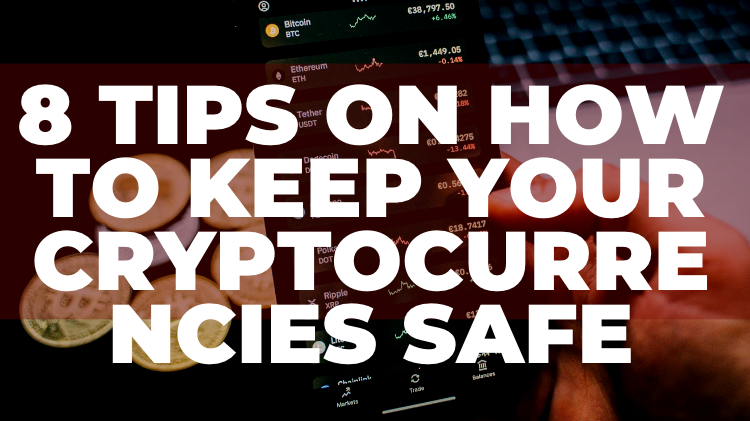Cryptocurrencies are decentralized, and thus they offer greater privacy and security than traditional financial systems. However, this also means that the responsibility of securing your assets falls solely on you. Here are a few tips on how you can keep your digital assets safe against theft, hacking, fraud, and other illegal activities.
Use a secure and reliable crypto platform
When you using cryptocurrencies, you’re essentially entrusting your digital assets to a third-party platform, such as a crypto exchange or wallet. If the platform you’re using is not secure or reliable, your assets could be vulnerable to hacking attacks or other types of security breaches. This could result in the loss of your crypto assets, or even worse, theft of your personal and financial information.
That’s why it’s best to do your research and choose a reputable platform like the Kasta app, which passes delicate security audits and has strong security measures in place, such as a multi-layer security system, identity verifications, regular software updates, and more.
Use strong and unique passwords
A password is the first line of defense against hackers and other malicious individuals who may try to gain access to your account. If your password is weak or easy to guess, it makes it much easier for hackers to steal your assets.
Using a strong password means choosing a password that is at least 8 characters long and includes a mix of letters, numbers, and symbols. Avoid using easily guessable passwords such as “password” or “123456” as these are commonly used and easily cracked.
In addition to a strong password, it’s important to use a unique password for each platform you use. This is because if a hacker gains access to one of your passwords, they could potentially use it to access all of your accounts.
Keep your software up-to-date
Technology is constantly evolving and so are the techniques and methods that hackers use to try and gain access to your account. To counter these threats, crypto platforms release regular updates to their software that include security patches and improvements.
These updates are designed to fix known vulnerabilities and weaknesses in the platform’s security, making it harder for hackers to gain access to your account. By keeping your platform up-to-date, you’re ensuring that your assets are protected by the latest security measures.
Enable two-factor authentication (2FA).
2FA adds an extra layer of security to your account by requiring an additional verification step when you log in, making it much harder for hackers to gain access to your assets, even if they’ve managed to obtain your password through other means.
When you enable two-factor authentication, you’ll be required to enter a unique code, typically sent to your phone or email, in addition to your password. This means that even if someone else has your password, they won’t be able to access your account without also having access to your phone or email.
Backup your crypto wallet
A crypto wallet holds your private keys, which are used to access and manage your cryptocurrencies. If you lose access to your wallet or your wallet becomes corrupted, you may be at a higher risk of losing your digital assets forever. This is why it’s crucial to regularly back up your wallet and store the backup in a secure location.
By backing up your wallet, you can restore your access to your digital assets if something goes wrong. This ensures that you don’t lose your investment and can continue to manage your cryptocurrencies as intended.
Use a hardware wallet
A hardware wallet is a physical device that stores your private keys offline, providing an extra layer of security to your digital assets. When you use a hardware wallet, you can securely store and manage your cryptocurrencies without exposing your private keys to the internet or other potential security risks. This greatly reduces the risk of hacking or theft.
Many hardware wallets are designed with additional security features, such as built-in encryption and password protection. This further increases the security of your digital assets and helps prevent unauthorized access.
Keep your private keys private
Never share your private keys with anyone else as they provide access to your cryptocurrencies, and anyone who has access to them can potentially steal your digital assets. It’s also ideal to store your private keys in a secure location, such as a hardware wallet or encrypted digital file. This helps prevent unauthorized access, while keeping your private keys safe from potential security risks.
Be cautious of phishing scams
Hackers may try to trick you into revealing your login credentials or private keys through phishing scams. These can take many different forms, such as fake emails, social media messages, or websites that look like the real thing. These scams are designed to trick you into entering your private information, which can then be used to steal your digital assets.
To protect yourself from phishing scams, it’s important to be cautious and verify the authenticity of any messages or websites that ask for your sensitive information. Always double-check the URL of any website that you visit, and look for the padlock symbol in your browser’s address bar to ensure that you’re on a secure website.
At the same time, never click on links or download attachments from unknown sources, and be wary of unsolicited messages that ask for your private information.
The Bottom Line
With the rise of global crypto adoption, it is crucial to prioritize security measures to protect your assets and keep your personal information safe. The risks of hacking, theft, and other forms of cybercrime are high, making it essential for users to stay vigilant and take steps to safeguard their assets.
By following the abovementioned best practices, such as using a reliable platform, enabling 2FA, using strong passwords, keeping platforms up-to-date, being cautious of phishing scams, and storing private keys securely, you can reduce the risk of cyber threats and enjoy the benefits of using crypto with peace of mind.
Disclaimer: The article is published as received and include links to third party. Please DYOR at your end before investing or using any third party app.

Krishna Murthy is the senior publisher at Trickyfinance. Krishna Murthy was one of the brilliant students during his college days. He completed his education in MBA (Master of Business Administration), and he is currently managing the all workload for sharing the best banking information over the internet. The main purpose of starting Tricky Finance is to provide all the precious information related to businesses and the banks to his readers.




